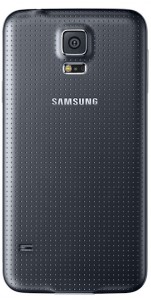 With a recent software update, Samsung has given customers a new way to use the Galaxy S5's built-in optical heart rate sensor: to detect stress. In a new update -- first reported by Samsung-focused news site SammyHub -- users can not only check their stress level, but map it out on an hourly, daily, or monthly graph.
With a recent software update, Samsung has given customers a new way to use the Galaxy S5's built-in optical heart rate sensor: to detect stress. In a new update -- first reported by Samsung-focused news site SammyHub -- users can not only check their stress level, but map it out on an hourly, daily, or monthly graph.
The Galaxy S5's heart rate sensor requires the user to put their fingertip on the back of the phone in order to take a reading, a process that's a little cumbersome if you're tracking your heart rate as part of a fitness regimen -- the use case that Samsung has promoted for the sensor so far, since it became known in February. Stress tracking could represent a use case that's more suited to the phone's form factor. Of course, Samsung's smartwatches -- the Galaxy Gear and Gear Fit -- both contain heart rate sensors of their own. It's unclear whether the latest S Health update will allow the user to track stress based on those sensors.
It also falls squarely in the realm of wellness and fitness tracking, which makes sense considering that earlier this year, after a lengthy deliberation, South Korea's Ministry of Food and Drug Safety (similar to the US FDA) opted to create a new regulatory framework for fitness devices. Previously, the Ministry regulated anything with a heart rate sensor as a medical device.
That said, there are plenty of indications that Samsung wants to take its S Health application deeper into the realm of medical devices in the future, including its securing of FDA clearance in here in the US and its investment in glucometer connectivity startup Glooko. Glooko CEO Rick Altinger told MobiHealthNews at the start of this year that integration of Glooko and S Health is "not a matter of ‘if’, it’s a ‘when’ and ‘exactly how’."
The company also partnered with the University of California San Francisco in February to create a Digital Health Innovation Lab with the goal of “accelerat[ing] validation and commercialization of promising new sensors, algorithms, and digital health technologies”.
Stress, an important but historically hard to define wellness metric, is increasingly seen as an important element of a mobile health platform play like Samsung's S Health. Aetna Carepass, which aims to be comprehensive health hub on the smartphone by integrating with other health and fitness applications, added integration with MeQuilibrium last year, in what the company hoped would be the first of multiple stress interventions.


















